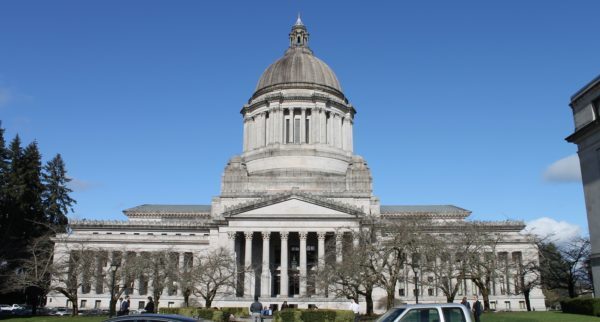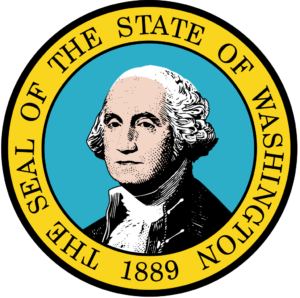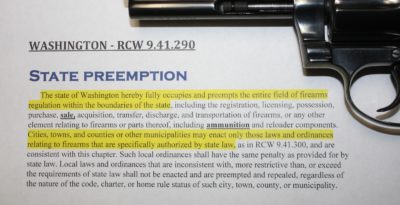
November 11 is known across the country as Veteran’s Day, a federal holiday that originally was known as Armistice Day to commemorate the cessation of hostilities at 11 a.m. on that date in World War I, ending on the 11th hour of the 11th day of the 11th month.
But for those hardy souls whose ancestors came to settle in the Evergreen State, Nov. 11 is also Washington State’s birthday. Washington achieved statehood in 1889, named after the first U.S. president, and the 18th largest state in the union, according to a history at Wikipedia.
According to an online history of the state, the Washington Constitution “was framed by a convention of seventy-five delegates, chosen by the people of the Territory of Washington at an election held May 14, 1889, under section 3 of the Enabling Act. The convention met at Olympia on the fourth day of July, 1889, and adjourned on the twenty-second day of August, 1889. The Constitution was ratified by the people at an election held on October 1, 1889, and on November 11, 1889, in accordance with section 8 of the Enabling Act, the president of the United States proclaimed the admission of the State of Washington into the Union.”
Washington is the 42nd state, and in an original draft of the state constitution, one will find this proposed amendment:
“Section 7. No idiot or insane person shall be entitled to the privilege of an elector.”
One glance around the landscape might suggest a lot of present Washington residents may not pass the smell test on that one, and late night comedians could have a field day.
The proposed constitution of 1878 also contained this provision:
“Section 19. The right of the people to keep and bear arms shall not be infringed, but this shall not be construed as to justify the carrying of concealed weapons.”
 In those days, it was not uncommon for people to carry sidearms or even long guns openly. The notion of carrying concealed was limited to shady people; gamblers, scoundrels and others of that ilk.
In those days, it was not uncommon for people to carry sidearms or even long guns openly. The notion of carrying concealed was limited to shady people; gamblers, scoundrels and others of that ilk.
When the State Constitution was finally adopted, Article I, Section 24 said this:
“The right of the individual citizen to bear arms in defense of himself, or the state, shall not be impaired, but nothing in this section shall be construed as authorizing individuals or corporations to organize, maintain or employ an armed body of men.”
Washington is an “open carry” state, protected by the constitution, and concealed carry was first officially permitted by law back in 1935. One obtained a permit to separate himself/herself from the aforementioned “shady people” who might stuff a pistol into a pocket or hidden holster for nefarious reasons.
Washington’s language was so good that when Arizona achieved statehood on Feb. 14, 1912, its constitution copied the provision word-for-word, as Section 26 of that document, with a few punctuation differences.
Ten years ago, someone with a blistering sense of humor proposed changing the State Seal with Ballot Measure 1069. According to an online history of that episode, “This measure would require the seal of the State of Washington to be changed to depict a vignette of a tapeworm dressed in a three-piece suit attached to the lower intestine of a taxpayer shown as the central figure. The seal would be required to be encircled with the following words: “Committed to sucking the life blood out of each and every tax payer.”
The proposal did not, according to the narrative, qualify for the ballot.
At the outbreak of the coronavirus pandemic panic, there were more than 650,000 active concealed pistol licenses in the state. Over the past 7 ½ months, that number declined dramatically to 636,403 as of Nov. 1. The reason simply was (and remains in some cases) law enforcement agencies suspended the accepting of new applications because fingerprinting is required.
There is nothing in state statute that allows agencies to suspend this activity. The law is specific:
“1) The chief of police of a municipality or the sheriff of a county shall within thirty days after the filing of an application of any person, issue a license to such person to carry a pistol concealed on his or her person within this state for five years from date of issue, for the purposes of protection or while engaged in business, sport, or while traveling. However, if the applicant does not have a valid permanent Washington driver’s license or Washington state identification card or has not been a resident of the state for the previous consecutive ninety days, the issuing authority shall have up to sixty days after the filing of the application to issue a license. The issuing authority shall not refuse to accept completed applications for concealed pistol licenses during regular business hours.” (Emphasis added.)
Still, roughly one in every nine or ten qualified adults in Washington has a concealed pistol license. Compared to other states, Washington remains a fairly safe place to live, with an annual statewide homicide rate lower than many individual cities, such as Baltimore and Chicago.
Bellevue, Wash, is home to the Second Amendment Foundation and Citizens Committee for the Right to Keep and Bear Arms.
The state has one of the original firearms preemption statutes, dating back to 1983 and 1985. Under the language of this common sense law:
“The state of Washington hereby fully occupies and preempts the entire field of firearms regulation within the boundaries of the state, including the registration, licensing, possession, purchase, sale, acquisition, transfer, discharge, and transportation of firearms, or any other element relating to firearms or parts thereof, including ammunition and reloader components. Cities, towns, and counties or other municipalities may enact only those laws and ordinances relating to firearms that are specifically authorized by state law, as in RCW 9.41.300, and are consistent with this chapter. Such local ordinances shall have the same penalty as provided for by state law. Local laws and ordinances that are inconsistent with, more restrictive than, or exceed the requirements of state law shall not be enacted and are preempted and repealed, regardless of the nature of the code, charter, or home rule status of such city, town, county, or municipality.”
This statute has been used as a model by other states to adopt similar language.
The history of Washington State is colorful, with its share interesting characters, a few outlaws here and there, dangerous volcanoes, earthquakes, salmon, logging, farming, ranching, gold prospecting and politicking.
And on Nov. 11, that history invariably seems to be lost in the background of the other important observance honoring the nation’s veterans.